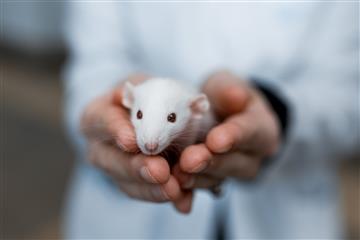
The study will help to study the nature of depression and the mechanisms of action of antidepressants. Biologists from Samara University. Korolev (a university participating in the national project “Science and Universities”) conducted an experimental study on rats to treat drug-induced depression, which can occur in patients as a result of long-term use of reserpine, a drug known to lower blood pressure. pressure. As an active substance, reserpine is included in many antihypertensive drugs that effectively lower blood pressure, but it has many side effects, one of which is the possible occurrence of severe depression in the patient. During the experiments, the scientists analyzed the effectiveness of stopping attacks of reserpine depression in rats using an antidepressant such as fluoxetine (widely known in the world under the trade name “Prozac”). “Currently, the problem of the widespread prevalence of depressive disorders is acute throughout the world. According to WHO, about 10 – 15% of the entire population of the Earth suffers from depression. In this regard, it is very important to study the nature of various types of depression and the mechanisms of action of antidepressants on the corresponding biological models, for example, on laboratory rats, despite the fact that many antidepressants have been used in therapy for many years, their effect on various behavioral reactions and behavior in general has not been fully studied. In the course of our study, we studied the behavioral characteristics of rats under the influence of the antidepressant fluoxetine in a pharmacological model of depression caused by taking reserpine,” said Vladimir Belyakov, associate professor of the department. Department of Human and Animal Physiology, Samara University. Korolev. The study involved 18 adult sexually mature male rats of approximately the same age and weight. During the experiments, as Vladimir Belyakov emphasized, all the necessary bioethical standards were observed. First, the rats were divided into two groups – experimental and control. Participants in the first group were administered a solution of reserpine at a dose of 4 mg / kg, rats in the control group did not receive the drug. After the administration of reserpine, the scientists assessed and compared the behavior of the rats from both groups by placing the rodents in standard laboratory settings, such as an elevated plus maze, an open field maze, and a Barnes maze. The rats’ behavior indoors was recorded and processed in a special computer program that recorded the experimental data. Then the scientists divided the rats that received reserpine into two subgroups – some were additionally administered the antidepressant fluoxetine in a relatively low physiological dose – 0.3 mg / kg, while others received a very significant dose of the antidepressant – eight times more than in the other subgroup. – 2.4 mg / kg. “The creation of a reserpine model of depression led to the formation of a special behavioral phenotype in rats. A characteristic feature of the behavior of depressive rats was a significant decrease in their spatial memory and the effectiveness of motor navigation in the Barnes maze to find a real shelter,” Vladimir emphasized. According to the scientist, during the first task in the Barnes maze, depressed rats needed 28% more time to find the hole of the real shelter compared to their healthy “colleagues” from the control group. shelter in the maze area – a “hole” in which they can hide. The second test, conducted 3 minutes after the first, also showed the need for more time to move around the maze arena. did not remember where he had found the saving “hole” just a few minutes ago. The maximum difference between the two groups was observed during the third test, when depressed rats spent 67% more time searching for the real shelter. This pattern may be associated with the direct influence of reserpine on the neurotransmitter systems of the brain structures that regulate memory function. and search activity,” said one of the authors of the study, Master of Biology Kirill Klimenko. In the Open Field setup, depressed rats showed a pronounced deficit in horizontal motor activity, they moved extremely slowly and very rarely entered the center of the arena, preferring to stay close to the sides of the site; Their vertical activity decreased almost fivefold – this is when the rats stand on their hind legs, surveying the surroundings. As experiments showed, after taking the first doses of the antidepressant, the rats quickly regained their spatial memory, anxiety disappeared and interest in exploring the surrounding space appeared. The furry explorers spent less time searching for a real “hole” and made mistakes in their searches much less often, and also spent much more time in the light open corridors of the plus maze, hiding less in the darkness. However, scientists did not find significant differences in the behavior of rats that received a small dose of the antidepressant and a large dose. That is, as it turned out, for the relief of this type of drug-induced depression, the size of the dose of fluoxetine taken does not matter – even small doses have a full therapeutic effect. “The behavioral characteristics of depressive rats established during the experiments are probably determined by the mechanism of action of reserpine – this drug has the ability to effectively block the activity of proteins-carriers of monoamine mediators – substances necessary for the normal functioning of the body. such as norepinephrine, dopamine, serotonin. These mediators are active in the functioning of the brain’s reward system, when positive emotions are formed for a successfully completed action or decision. Due to the blocking of transporters in the synapses of the brain, a temporary increase in mediators of positive emotions occurs, as our studies have shown, the effect of fluoxetine was not denied on the spatial memory and motor activity of depressive rats with the reserpine model of depression with behavioral effects in rats with different doses of fluoxetine. To continue research in this direction,” concluded Vladimir Belyakov.
0 комментариев